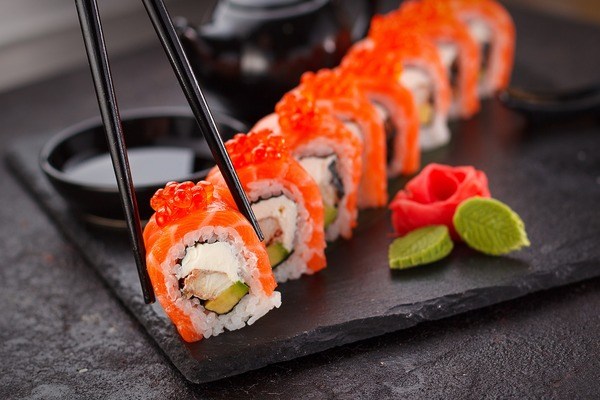
Sushi is raw fish molded into an art form. It is a wildly popular form of food and in some cities, sushi restaurants seem to be on every street corner.
It’s super healthy, filled with ocean fish and omega-3 fatty acids. It’s fresh, so it is better than processed food….
Wellllll, not exactly…. Hate to burst your bubble, but if you love sushi, you need to read on. You won’t believe what those lovely creations are hiding.
We’ll start with some not so gross side effects of eating sushi. But by the time we get to number 3, you’d better put down your chop sticks and by number 8, you won’t want to be eating at all.
